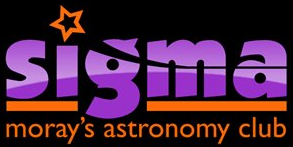2023 Programme
Meetings are held on the first Friday of each month* at Lhanbryde Community Centre (Robertson Road, Lhanbryde, Moray, IV30 8QQ). The Centre is ideal for routine observing either during or after meetings, with only minimal light pollution.
*January, February and March meetings will be fully online via ZOOM. This is to avoid having to cancel any meetings due to bad weather locally or affecting the Speakers being able to travel to Moray.
In the event of any other meeting having to take place over ZOOM this will be communicated to members by email and the website.
Doors open at 7pm for a 7.30pm start.
Non-members are always welcome – please contact us.
Download 2023 Leaflet
Of course, events got in the way. The coronavirus pandemic shut down travel across the world. Argentina and Chile closed their borders to foreigners. Tour companies cancelled trips, and Mike began to resign himself to missing this eclipse.
However … against the odds, a narrow window of opportunity began to inch open. Astro-Trails and Eurotur were able to negotiate permits for small groups of eclipse chasers to enter Argentina, travelling in a bubble like a sports team. Mike was one of their guest astronomers.
He made it to Argentina, safely. He made it back, safely. And in between he saw a stunning eclipse from an estancia (horse ranch) in Neuquen Province, northern Patagonia.
They were by predicted in 1915 by Albert Einstein and detected 100 years later by the most sensitive scientific instruments ever built – a discovery awarded the 2017 Nobel Prize for Physics. And yet in just over seven years the detection of gravitational waves has gone from an epoch-making breakthrough to an almost routine occurrence, with almost 100 gravitational-wave events observed to date, and has opened an entirely new way for astronomers to study the universe.
In this talk join Martin as he explores the exciting dawn – and bright future – of gravitational-wave astronomy, and the remarkable new picture of Einstein’s universe which it is revealing to us.
After a short introduction into the diversity of extrasolar planets, Patrick will try to shed some light on the fascinating research on the origin of life and to answer some questions regarding the possibility of life on extrasolar planets: What does life need to start? Which environments might be harmful to life? What exotic conditions on a planet can we imagine that can still give rise to and host life? And maybe most importantly: How can we detect life on another planet?”
In recent years, the survey expanded to the Southern hemisphere, and even more recently, it started to add time-domain observations to its surveys, to monitor variable objects.
In this talk Anne-Marie will discuss the history and technological developments of the Sloan Digital Sky Survey, highlights of scientific discoveries, and what we can expect from SDSS in the next few years. And as SDSS was one of the first surveys to make their data freely publicly available, she will also showcase its data archive, and demonstrate how anyone who wants to take a look at a digital part of the sky can do so!
More information: https://www.sdss.org/
Friday, 5 May 2023 – ZOOM Meeting
The Fifth George Fraser Memorial Lecture
introduction by Dr Howie Firth
Apollo 13: Beyond the Headlines
Prof. Nigel Bannister
Space Park, Leicester
SIGMA holds a bi-annual memorial lecture in honour of Prof. George Fraser (22 July 1955 – 18 March 2014). Born and brought up in Burghead, George was Professor of Detector Physics and Director of the Space Research Centre of the University of Leicester. Though his work was recognised internationally, his achievements are virtually unknown locally.
By the time Apollo 13 was launched in 1970, just 9 months after humans first set foot on the moon, attention spans had been exhausted and lunar travel was becoming back-page news. The events which took place in the hours after Saturn V number SA508 left the launch pad catapulted the programme back into the full glare of publicity and reminded us of just how risky space travel is.
Revisit the history of space exploration, and perhaps your own childhood, via Airfix, Revell, Monogram, Aurora and other manufacturers. No assembly required.
Astrophotography is a vast and diverse subject, however, over the last 10 years there has been a revolution in the equipment and processing techniques available to the amateur allowing images of celestial objects to be obtained of a quality once restricted to the professional.
This presentation is an overview of the subject including stars/ meteor timelapse photography, solar system object imaging, as well as deep sky object (e.g nebulae and galaxy) astrophotography.
